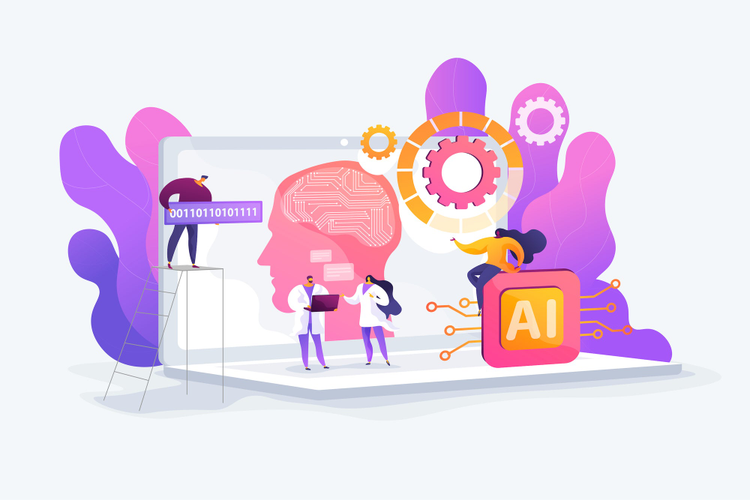AI careers, digital literacy, and tough ethical questions: A coffee chat with Andrew Ng at Adobe

Wondering what it takes to launch a career in artificial intelligence (AI)? Imagining how AI might help save the world or what to do about the ethical dilemmas in the field?
These are just a few of the big ideas that came up when Adobe’s Tim Converse, Senior Director, Applied Research and Machine Learning, and Adobe’s Machine Learning and Training team met with Andrew Ng for a virtual coffee chat. Andrew is the founder of DeepLearning.AI, a co-founder of Google Brain, the founder of Coursera, an adjunct professor at Stanford University, and a luminary in the fields of AI and machine learning.
Here are some of the top takeaways from Andrew and Tim’s conversation.
Digital education and the future of computer literacy
You can find Andrew’s machine learning classes on Coursera. In fact, it was teaching the same courses year after year — and even telling the same beloved jokes — that inspired him to found Coursera. He wanted to make education opportunities accessible to more people than you can fit in a single classroom. And by offering his own classes free to anyone, he also hopes to bring more minds to the world of AI.
Given his background, Andrew is often asked whether people should teach their kids coding. His answer is an analogy: There was a time when only monks could read and write, he says. There weren’t many books, so we could depend on a few people to manage them for us. But these days, literacy is a key to opportunity.
Computer literacy is the same: It has the potential to empower people. “Coding is the deepest way for people and machines to communicate, and given the importance of technology and computers, I think we are moving to a world where everyone should be computer literate.”
The opportunities are everywhere. For example, Andrew imagines the owner of his favorite pizza joint using AI to drive efficiencies in his business — he even thinks this kind of application could be the catalyst for digital literacy. “I hope the rise of data and AI and machine learning will become a gateway for a lot more people to become at least basic-level coders,” says Andrew.
What you need to know to launch an AI career
While you need linear algebra and calculus to understand deep neural networks, Andrew doesn’t think it’s the only way into an AI career. “It’s possible to get a neural network to work without knowing much calculus at all,” he explains. “This is how I teach it in the deep learning course on Coursera. … You’re better off with a deep mathematical understanding, but I wouldn’t let that hold you back. Jump in, learn the basics, and find a way to apply it to your job. Then keep going.”
Fighting bias in AI — and other tough ethical questions
In the context of the Black Lives Matter movement and ongoing social and political changes, there’s a growing awareness of unconscious bias in the data sets that power AI. Andrew argues that there’s no single, simple solution to eliminating bias. Instead, it will take a mix of strategies, including:
- Widespread internal education about bias — from both technical and non-technical perspectives.
- Systems for auditing the output of learning algorithms.
- Better diagnostics so engineers can look at data slices, especially to test whether AI applications are more accurate for one group than another.
- Diverse AI teams that can give a voice to more viewpoints.
Facial recognition raises even more tough ethical questions. Andrew thinks there are too many useful applications to stop using the tech, and a permanent ban would guarantee that we’ll fall behind in technology. Instead, he suggests thoughtful regulation to ensure that the tech can be built for good.
As more ethical questions arise, Andrew hopes the AI community will develop a systematic way to address them. It would be like a democracy, he says: People may disagree on the issues, but they can all agree on a process to make decisions about how to proceed.
How AI might save the world
On the horizon, Andrew is optimistic about the big problems AI could help solve, including climate change, healthcare, wealth inequality, and — in a COVID-19 world, especially — better digital education.
To learn more about how Adobe is using AI, ML, and deep learning, visit our Adobe Sensei site.